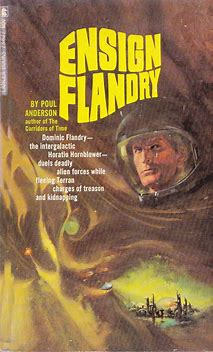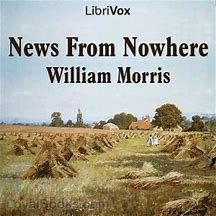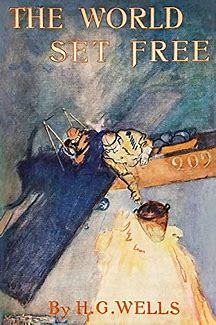Stories are about their characters so let's check on some of the characters introduced in the four stories mentioned
here.
"Moru understood about guns."
Moru, an inhabitant of Lokon, is present only in this single story, as indeed are Evalyth Sairn, whose husband Moru kills, and her colleagues.
"Adzel talks a lot about blessings in disguise, but this disguise was impenetrable."
-Poul Anderson, "How to Be Ethnic in One Easy Lesson" IN Anderson, The Van Rijn Method (Riverdale, NY, December 2009), pp. 175-197 AT p. 177.
If we have read the Technic History in its original publication order, then we know who Adzel is, a future colleague of David Falkayn. The narrator, James Ching, is present only in this single story but the The Earth Book Of Stormgate editor, Hloch, tells us about his later career.
"...Nat Falkayn rarely saw winged folk in the early part of his life."
-Poul Anderson, "Wingless" IN Anderson, Rise Of The Terran Empire (Riverdale, NY, March 2011), pp. 293-306 AT pp. 295-296.
"...winged folk...," Ythrians, visit Chartertown to conduct business with Nat's grandfather, David, or later his father, Nicholas.
When an Ythrian flies above in splendour:
"Against his will, Jack Birnam confessed the sight was beautiful."
-Poul Anderson, "Rescue on Avalon" IN Rise Of The Terran Empire, pp. 307-322 AT p. 309.
Birnam appears only in this single story but, at one point within it, converses with Ivar Holm, presumed ancestor of Daniel Holm whose son, Christopher, will marry Tabitha Falkyan, a direct descendant of David. Also, Christopher is Arinnian of Stormgate Choth, thus a chothmate of Hloch.
The Technic History is a future history that incorporates future biographies and family histories. From the student days of Falkayn's future colleague to the lifetime of one of his descendants is a long time but the Technic History is longer.









































